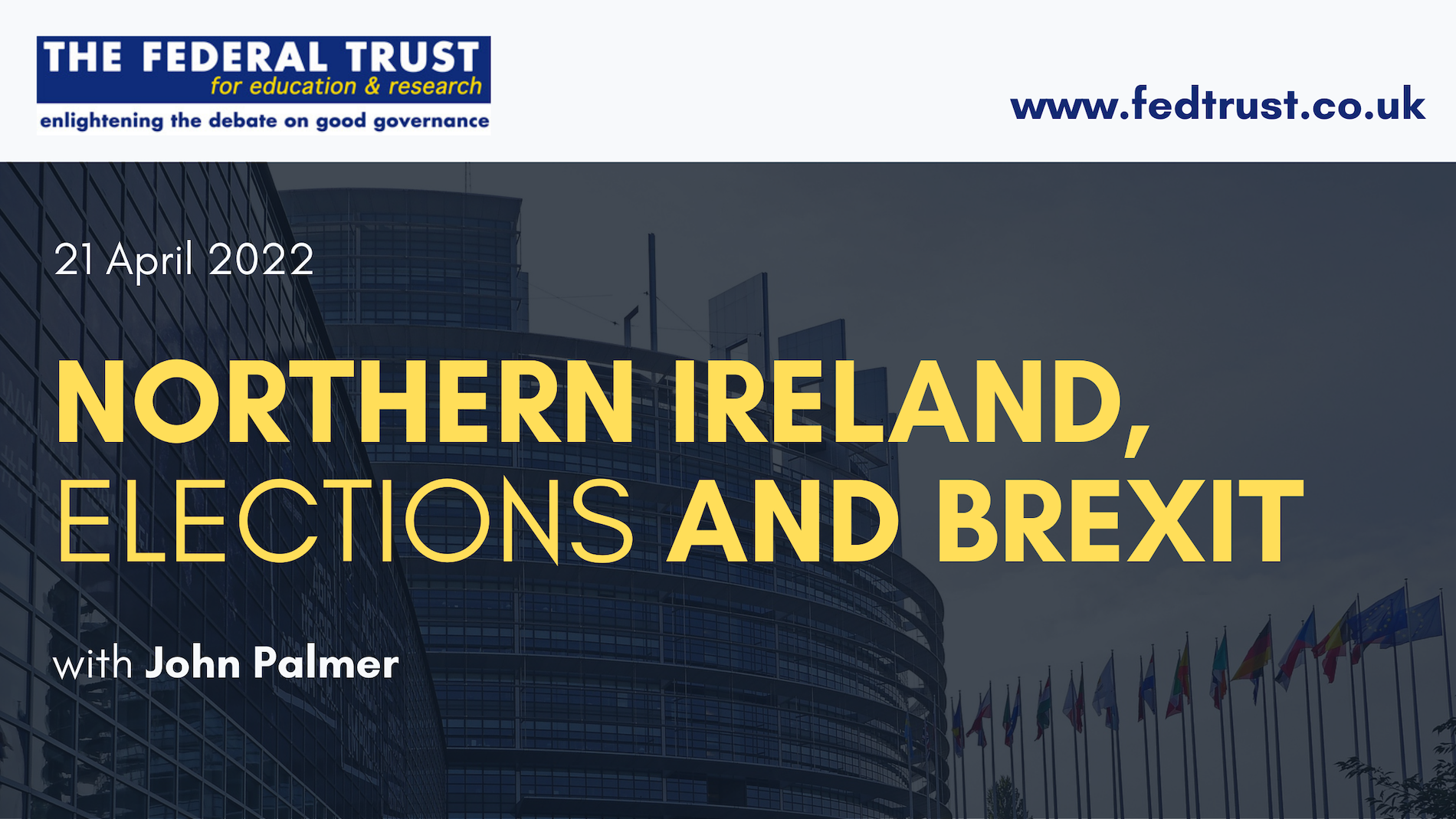In this new video our Director Brendan Donnelly and Council member John Palmer discuss the forthcoming elections in Northern Ireland and their likely implications for the Northern Ireland Protocol and relations with the rest of the island of Ireland.
WATCH THE VIDEO HERE
or in the player below:
SPEAKERS:
John Palmer is a Council Member of the Federal Trust and visiting practitioner fellow at Sussex University’s European Institute. He was previously European editor of the Guardian and political director of the European Policy Centre in Brussels.
Brendan Donnelly is the director of the Federal Trust and former Conservative MEP.






I have a question: under the Good Friday Agreement, the people of Northern Ireland have an inherent right to hold British or Irish citizenship, or both, and by virtue of the right to Irish citizenship, to citizenship of the European Union as well. Thanks to Brexit, UK citizens without Northern Ireland connections have lost the right to EU citizenship. Therefore, those in the latter category have fewer legal rights than those in the former. This seems inconsistent with what I assume is a fundamental constitutional principle of most democracies, namely, that all citizens must be accorded the same rights or at least cannot be accorded fewer rights than other citizens on the basis of criteria over which they have no control, in this case, the part of the country in which they happen to have been born. If I am correct, does this provide a basis for a legal challenge of some kind against Brexit?